Resources
The MIT AgeLab collaborates with its sponsors to conduct research to develop original insights, data and platforms for innovation. The AgeLab works with sponsors to translate that research into public education and resources that are helpful to families, students, researchers and the aging community.
Your search did not return any results.
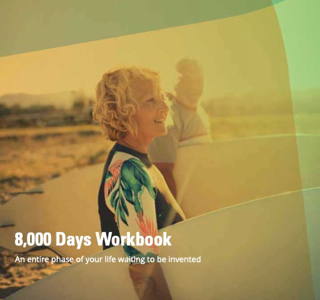
8,000 Days Workbook
8,000 Days Workbook presents several ways to help you rethink this 8,000 day portion of your life so you can make the most of your retirement by looking at it in four phases.
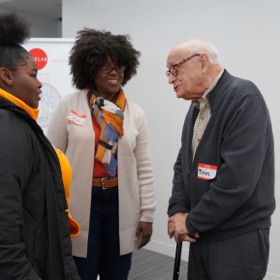
At the Crossroads: Family Conversations about Alzheimer's Disease, Dementia and Driving
At the Crossroads: Family Conversations about Alzheimer's Disease, Dementia and Driving contains information about the issue of driving and dementia and about how to transition a loved one with dementia from driver to passenger.
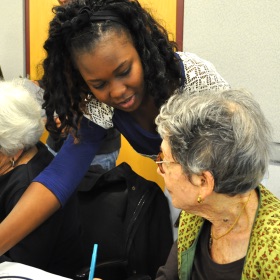
At the Crossroads: The Support Group Leaders Kit on Alzheimer's Disease, Dementia and Driving
Professional caregivers, support group leaders, social workers and other health providers who work with individuals with dementia or their families will find At the Crossroads: The Support Group Leaders Kit on Alzheimer's Disease, Dementia and Driving a resource for them around the driving issue.
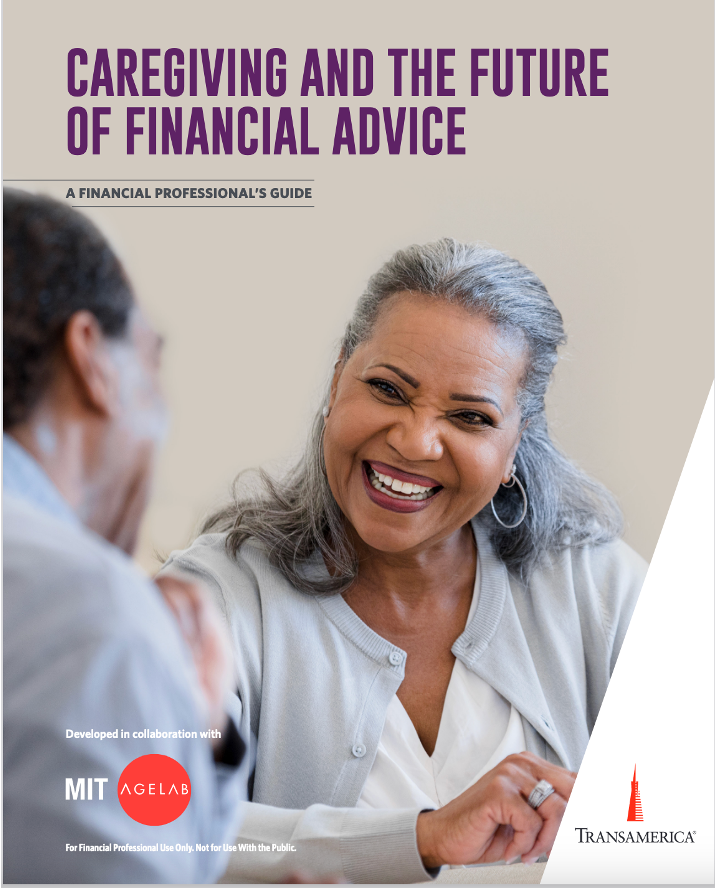
Caregiving and the Future of Financial Advice: A Financial Professional's Guide
In conjunction with Transamerica, the MIT AgeLab created a playbook for financial professionals that builds on survey and interview research with current and former family caregivers. This resource can help start conversations with clients who are facing the challenges of taking on a caregiver role.
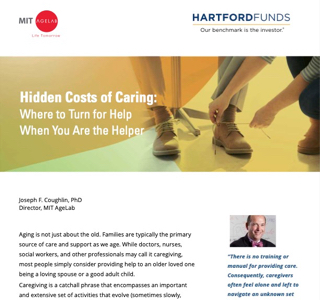
Hidden Costs of Caring: Where to Turn for Help When You Are the Helper
Hidden Costs of Caring: Where to Turn for Help When You Are the Helper provides financial advisors and clients with an overview of caregiving—what it is, who is most likely to provide it, what the associated costs are, and where those who are providing care to an older adult can turn for help.

It Could Happen to Me: Family Conversations About Disaster Planning
Older adults may be particularly vulnerable to the risks of a natural disaster. Planning in advance can help older adults and their families to be safer and to reduce stress. For older adults and families, see It Could Happen to Me: Family Conversations About Disaster Planning, for the ABCs of disaster preparedness.
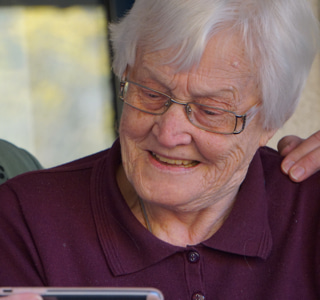
Modern Ideas, Modern Living: Home Design and Planning for the Lifestyle You Want
Modern Ideas, Modern Living: Home Design and Planning for the Lifestyle You Want discusses people's changing environmental needs and wants with age, examines elements of the age-friendly home and neighborhood, and provides checklists for homeowners thinking about the future.
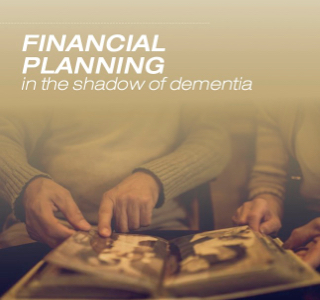
The Advisor's Guide to Financial Planning in the Shadow of Dementia
The Advisor's Guide to Financial Planning in the Shadow of Dementia provides financial advisors with the resources to help them help clients and/or clients' families who may be living with Alzheimer's disease or dementia manage financial decisions successfully.
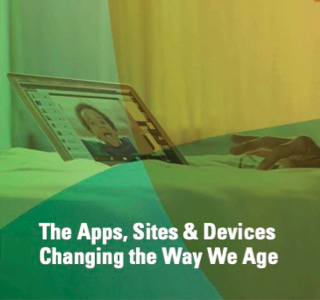
The Apps, Sites & Devices Changing the Way We Age
The Apps, Sites & Devices Changing the Way We Age reveals an array of apps, sites, and devices that can make it easier for you to work (if you want to), stay healthy, live in the home of your choice, and remain socially connected as you age. These ideas aren't all inclusive, but can start you down the path of using technology to live better.
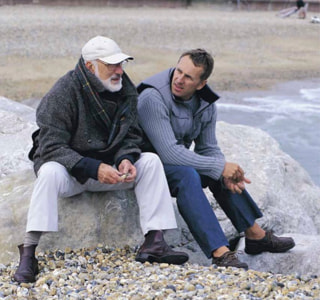
The Calm Before the Storm: Family Conversations about Disaster Planning, Caregiving, Alzheimer's Disease and Dementia
The Calm Before the Storm: Family Conversations about Disaster Planning, Caregiving, Alzheimer's Disease and Dementia draws on insights from families and caregivers with a loved one with dementia to provide suggestions and information about planning more successfully for natural disasters.
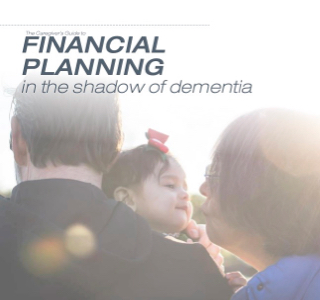
The Caregiver's Guide to Financial Planning in the Shadow of Dementia
The Caregiver's Guide to Financial Planning in the Shadow of Dementia equips caregivers with the information and tools to ask the right questions and navigate financial decisions effectively on the behalf of family members living with Alzheimer's disease or dementia.

The Future of Client-Advisor Relationships
A study by AIG Life & Retirement and MIT AgeLab finds that financial clients have a newfound willingness and desire to have wide-ranging conversations with their financial professionals. Today’s financial professionals have a unique opportunity to shape the future of planning. Learn more about what clients want, how to meet the needs of multiple generations, and how to engage in conversations that push beyond traditional boundaries.
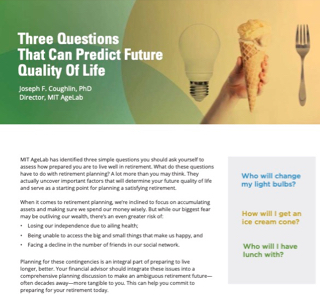
Three Questions That Can Predict Future Quality of Life
Three Questions That Can Predict Future Quality of Life presents three simple questions you should ask yourself to assess how prepared you are to live well in retirement. What do these questions have to do with retirement planning? A lot more than you may think. They actually uncover important factors that will determine your future quality of life and serve as a starting point for planning a satisfying retirement.
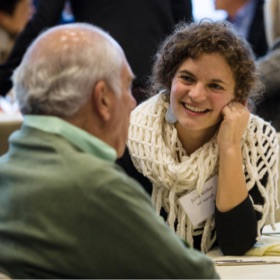
We Need to Talk: Family Conversations with Older Drivers
We Need to Talk: Family Conversations with Older Drivers addresses questions about whether a loved one is driving safely and provides ideas on how to initiate constructive conversations with loved ones around the driving issue. AARP has also used these materials to develop a brief seminar targeted toward adult children of older drivers around this issue. Contact AARP at wntt@aarp.org to find out where these seminars may be available in your area.

Your Road Ahead: A Guide to Comprehensive Driving Evaluations
Your Road Ahead: A Guide to Comprehensive Driving Evaluations has information about whether a personalized driving evaluation, conducted by an occupational therapist with specialized training, is right for you or for a loved one.
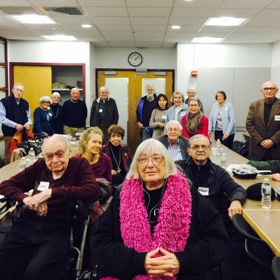
Your Road to Confidence: A Widow's Guide to Buying, Selling and Maintaining a Car
Some women who find themselves widowed may also find themselves in the position of becoming solely responsible for their own mobility, or for the transportation needs of others in the household. For some, the change from primary passenger to primary driver is a dramatic one. For information and support for making this transition, see Your Road to Confidence: A Widow's Guide to Buying, Selling and Maintaining a Car.
Didn’t find what you’re looking for?
